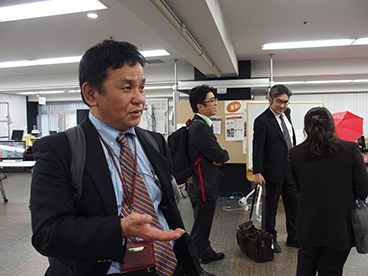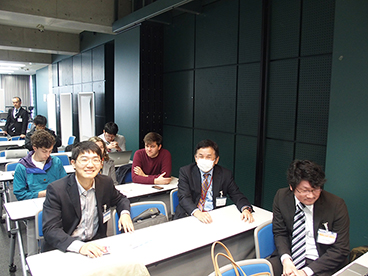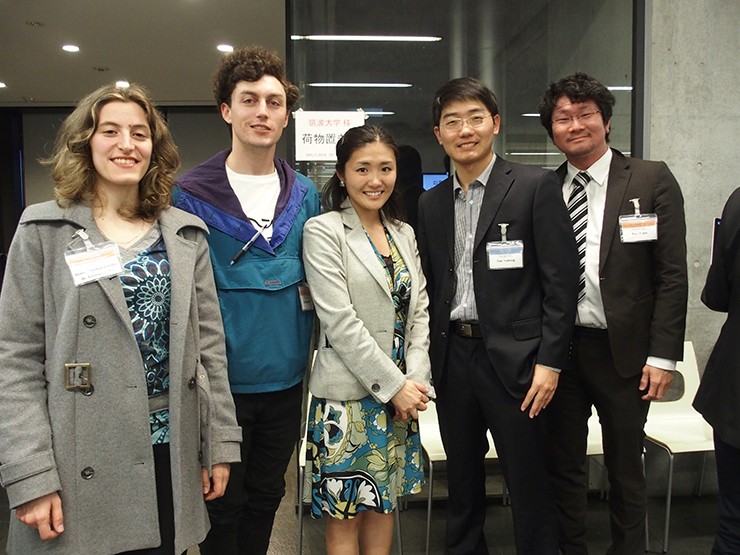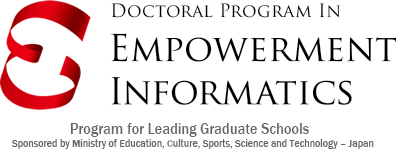Report on participation in Interdisciplinary Workshop for Leading Students 2016 (IW4LS2016)
Six new EMP students participated in the Interdisciplinary Workshop for Leading Students 2016 (IW4LS2016) held Saturday, April 9, 2016 at Waseda University. Intended to enhance future cooperation and foster student exchange in leading interdisciplinary research in informatics, this workshop welcomed about 100 students and faculty members from four leading programs: Waseda University’s Graduate Program for Embodiment Informatics, the Toyohashi University of Technology’s Doctoral Degree Program for Training Brain Information Architects, the University of Tsukuba’s Ph.D. Program in Empowerment Informatics, and Nagoya University’s Graduate Program for Real-World Data Circulation Leaders. Participants introduced their leading programs to each other and discussed prospects for future cooperation.
Following introductory remarks by the workshop hosts, the workshop began with introductions to the leading programs by their students. After that, participating students split into teams for discussion of proposals to improve relations between students in general, between younger and older students, and between students from differing fields. Lastly, each team of students announced its improvement proposals, and the teams discussed these, and then the team of third-year student Shori Kano was voted winner of the Best Proposal Award.
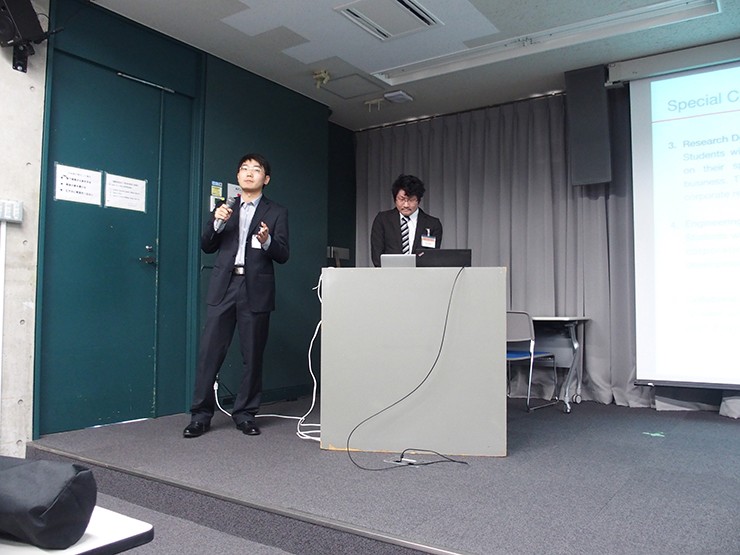
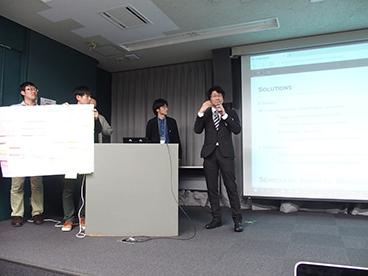
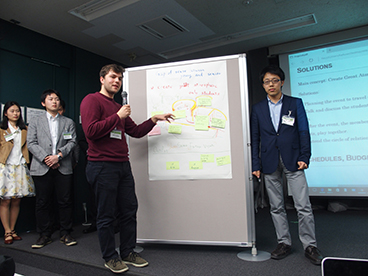
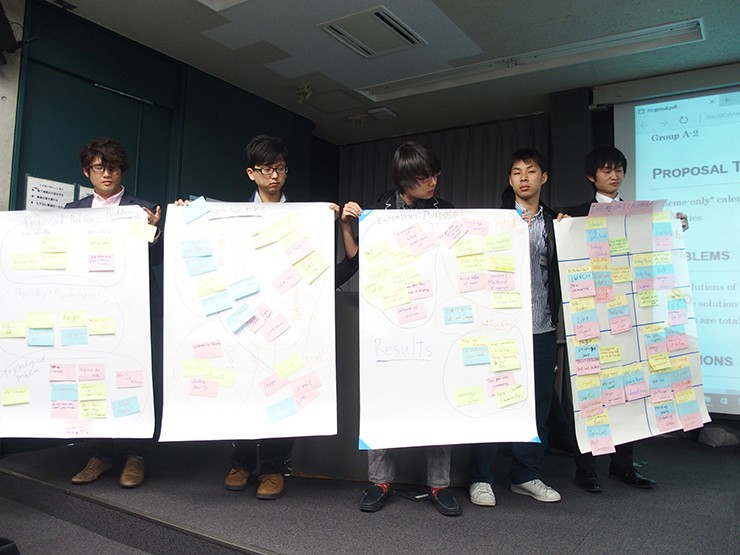
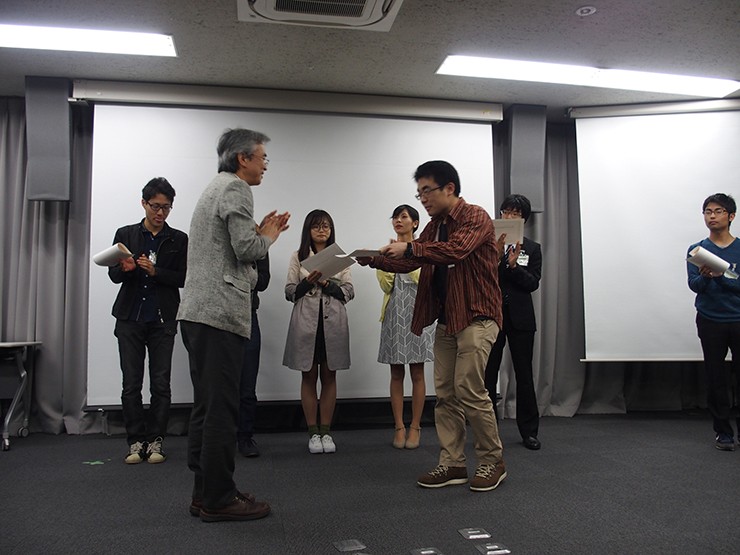
My group discussed proposals to improve relations between younger and older students in leading programs. Focusing on the scarcity of opportunities for interaction among students from different years as a cause of the worsening of relations between younger and older students, our proposed solution called for events that would encourage proactive communication and holding classes conducted by students and the university together. Since the presentations were made in English, we also were able to improve our international presentation abilities. This proved a valuable experience because we learned through discussions that inadequate communication between students of different years is a common problem in any graduate school.
The IW4LS16 event has proved to be a very good opportunity for skill improvement. It was a unique occasion to focus on multidisciplinarity, integration and teamwork by addressing interaction issues between people with different backgrounds, grades or statuses and how to bridge consequent communication gaps. The participants divided into groups to discuss and present a proposal for improving interaction in a leading program, in my group’s case, among students with different backgrounds. My group’s proposal was named LeadConn, a mobile platform with several tools, such as a crowdsourced wiki, word-clustering, key concept glossary, ecommendation system, etc. – aiming to connect and to bring closer students or researchers with different backgrounds. This way it would be easier to bridge the knowledge gap between those from different backgrounds.
For international students like me, this event allowed having a better understanding on how leading research and education on Japanese universities work. Networking with students from other backgrounds allowed to establish points of contact for future reference and to get to know different perspectives on the discussed topics. Moreover, getting to know Waseda University and Kobo Workshop was an interesting experience to see what kind of work is being done on other leading programs. It was also a great opportunity to exchange ideas under an informal environment.
My team discussed and presented on proposals for improving relations between younger and older students. Since this was my first time participating in this event, it was hard for me to take part in discussions and presentations in English, with which I am not very familiar. However, I was able to take part in the discussions one way or another thanks to the support of my teammates, and we were able to win the Best Proposal Award as a result. It seemed to me that even though all of us were students in leading programs, there were some little differences in the strengths of each school in terms such as discussion and presentation abilities and technologies. By participating in this workshop, I was able to think more objectively about the abilities that I need.
